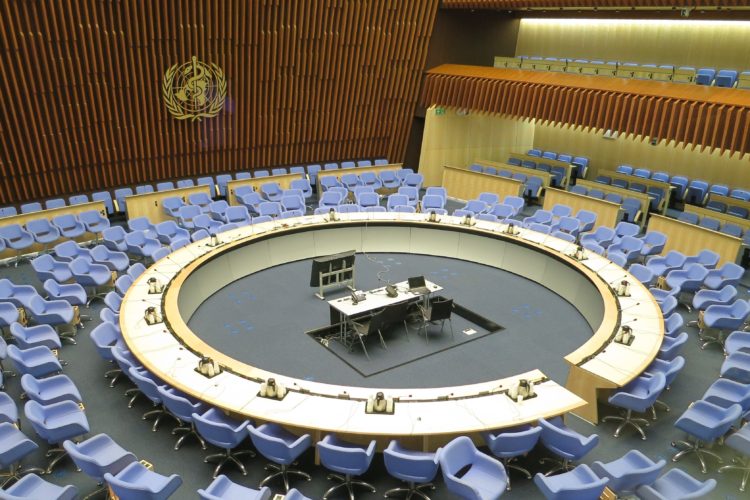BIOETHICS: BRAIN DRAIN
The World Health Organization is a specialized agency affiliated with the UN whose mandate is based upon improving the public health of all its member states. It has Headquarters in Geneva, Switzerland, and its current Director General is Tedros Adhanom, a former Ethiopian Health Minister. WHO is financed by member states, namely the largest contributors as of 2012 are: United States ($110 million), Japan ($58 million), Germany ($37 million), United Kingdom ($31 million) and France ($31 million). Its main focuses are communicable diseases, non-communicable diseases, environmental health, life course and life style, surgery and trauma care emergency work and health policy. Decisions are made by the World Health Assembly, which meets yearly in May. The Executive Board which reports to the World Health Assembly consists of 34 elected members. This committee will be a replication of the WHO Executive Board.
From 2000-2010 the number of universities educated migrants to the g20 grew by 60% to 32 million people, according to the OECD. The rate at which highly-skilled individuals are leaving the least developed countries to make a new life abroad is surpassing the number of other types of migrants from these countries. On one hand this might mean that host countries can benefit from the skills of these highly trained migrants, which then leads to increased economic growth, through higher employment rates and remittances sent back to the home countries. However, some development experts believe that the instance of “brain drain” may be detrimental to home countries as richer, more developed countries are removing skilled individuals who are integral to father development and a means to escape poverty. For example in India, home to 405 medical colleges enrolling 40, 525 students each years, sees the departure of a third of its qualified physicians leave each year to work abroad, even though it is currently experiencing a doctor-shortage. This demonstrates the impact that “brain drain” can have on a health system. The committee is to discuss whether brain drain is an issue worth addressing in the international public health sphere, and if yes what solutions can be offered to alleviate the pressures it places upon the health systems of the least developed countries.
Member States:
- Benin
- Burkina Faso
- Eswatini
- Gabon
- Kenya
- United Republic of Tanzania
- Zambia
- Argentina
- Brazil
- Chile
- Grenada
- Guyana
- USA
- Bangladesh
- Indonesia
- Sri Lanka
- Austria
- Finland
- Georgia
- Germany
- Israel
- Italy
- Romania
- Tajikistan
- Djibouti
- Iraq
- Sudan
- Tunisia
- United Arab Emirates
- Australia
- China
- Japan
- Singapore
- Tonga
BRIEFING PAPER COMING SOON !!

